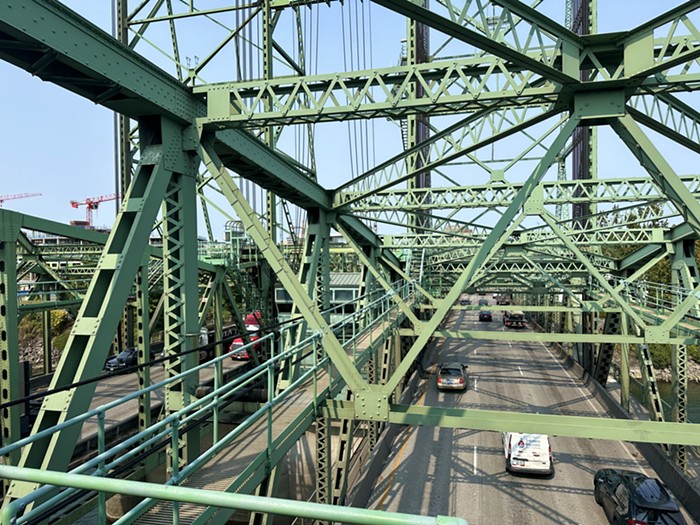
TriMet's pitch for the bond (pdf) includes a lot of alarming statistics about Portland's aging population and decrepit bus fleet: The elderly and people with disabilities take 10 million trips a year on TriMet and their population is expected to increase 150 percent by 2025. On top of that, 250 of TriMet's buses are "high floor" buses that aren't good for people with disabilities.
Okay, I've argued before in favor of more ample and stable funding for TriMet, but it's clear that the way TriMet is framing this bond measure is just using the elderly/disabled argument to get people behind backing public transit. They could make just as solid an argument for needing $125 million to invest in improving the bus routes for teenagers or office workers or the city in general, but frankly, it's hard to vote down your grandma at the ballot box.
It's kind of like Mayor Sam Adams using the excuse of helping the disabled to get people to support his controversial sidewalk management plan. TriMet needs this money to do all sorts of long-delayed improvements, funding for public transit is divisive, the best way to get voters to approve the $125 million is to message it as, "Vote for this or you're a heartless bastard who hates old people."
TriMet will need a can't-lose message like that if they're going to win. Portland Afoot has a roundup of past ballot measures, which points out a trend that seems to point to voters turning against the idea of giving more money to public transit. In 1990, 73 percent of voters approved a TriMet's bond, then in 1994 about 65 percent of voters approved a bond and in 1996 and 1998, support plummeted, with just over 50 percent of the region rejecting two proposed bonds.
With the tight economic times, this will be a tough year to sell voters on the idea of giving up another chunk of their paychecks. The only other bond on the ballot is a $72.4 million city bond for new fire trucks, having scuttled an idea to put a Parks bond on the ballot, too.


















